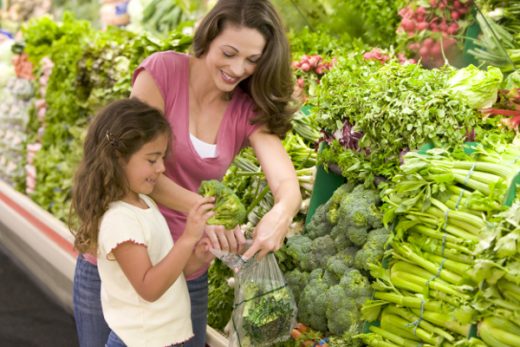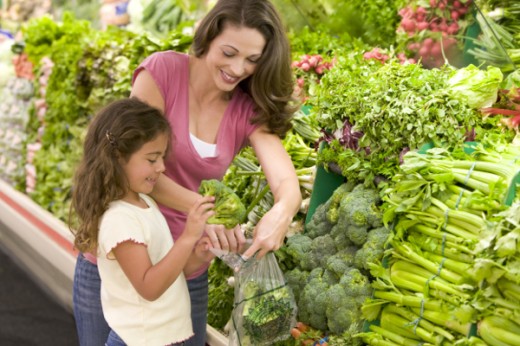Reprinted from the Pocono Record
July 06, 2006
YONKERS, N.Y. An investigation Consumer Reports has found that shoppers don’t need to buy organic foods across the board to get added health value. The report tells shoppers which organic products are worth seeking out and which ones are not. Consumers can pass on organic seafood and shampoo, for example, because their labels can be misleading.
The full investigation appeared in the February issue of Consumer Reports. The complete report, including a list of organic products that are worth buying and which are not, is also available on www.ConsumerReports.org.
Here are some of the recommendations Consumer Reports gives shoppers about organic products.
Organic products worth buying to avoid chemicals found in the conventionally produced versions: Fruits and vegetables, such as apples, bell peppers, celery, cherries, spinach, and strawberries. The USDA’s own lab testing found that even after washing, some fruits and vegetables consistently carry much higher levels of pesticide residue than others. Meats, poultry, eggs, and dairy products are also worth seeking out.
Organic products worth buying only if price is no object, include: processed foods and certain produce items, such as cauliflower, sweet corn, broccoli, mangos and sweet peas. Multiple pesticide residues are, in general, rarely found on conventionally grown versions of these fruits and vegetables, according to research by the Environmental Working Group.
Organically labeled items not worth buying include seafood and cosmetics. Whether caught in the wild or farmed, fish can be labeled organic, despite the presence of contaminants such as mercury and PCBs. The USDA has not yet developed organic certification standards for seafood. And while the USDA claims that organic labeled-cosmetics follow the same standards as food, Consumer Reports has found indiscriminate use of synthetic ingredients and violations of food-labeling standards.
The article also found that because of inconsistent and often weak government standards, organic-sounding labels could be confusing to consumers and even meaningless on some products due to lack of enforcement.
Even among the most meaningful and verified organic labels, there are subtle but important differences. If a product is labeled “organic,” at least 95 percent of its ingredients must be organically produced. There is one important exception, however, and that’s organic labels on seafood. Such tags are meaningless because the U.S. Department of Agriculture has no standards to back them up.
Also meaningless is the label “natural” or “all natural.” No standard definition for these terms exists except when it’s applied to meat and poultry products, which the USDA defines as not containing any artificial flavoring, colors, chemical preservatives, or synthetic ingredients, and even those claims are not independently verified.
Consumers interested in learning more about the health and environmental benefits of organic foods can visit www.GreenerChoices.org. Information about food labels is available at www.eco-labels.org.
Organic Without Breaking the Bank
The experts at Consumer Reports found many ways to save when buying organic, including:
Comparison shop. Doing price checks for regularly purchased organic items pays off: Consumer Reports found the price for the same jar of organic baby food ranged from 69 cents to $1.29 among several grocery stores in the suburban New York City area.
Go local. Find organic growers at most farmers’ markets. A USDA study in 2002 found that about 40 percent of those farmers don’t charge a premium.
Join the farm team. By buying a share in a community-supported organic farm consumers may get a weekly supply of produce in season for less than non-organic supermarket prices.
Order by mail. National providers will ship items such as organic beef www.mynaturalbeef.com. Other helpful sites are www.eatwellguide.org and www.theorganicpages.com.



Hi Tiffany!
I wondered with your posting here to buy organic foods and such, I wondered had you heard of the website called the Meatrix? http://www.themeatrix.com
It is kind of a spoof on the movie the Matrix, however it talks about buying local organic foods, about the antibiotics in foods and where our food comes from (what happens to the cows and such). It is kind of cute funny for the kids as in entertaining while at the same time is educational for all.
A real eyeopener for those who have been free from seeing this or knowing about antibotics and chemicals that go into our food.
I invite you to check it out and let me know what you think!:)
Infinite Love and Light,
Dr. Patti “Diamondlady” Diamond, DD
Dancing Dolphin Diamondlady
Director, The Diamondlady International Spiritual Oneness Center
Spiritual Medium, Author, Ascended Master
JUST PUBLISHED! Stepping Into Spiritual Oneness ~ Spiritual Rememberings of
the Soul Through Life Experience, available at http://www.diamondlady.net
Patti is also a Life Long Learning mom of 3 and has written the
internationally known book published in 2004, Life Long Learning ~
Transforming Learning – Discovering Learning Through Living Life In
Unlimitless Possibilities, available at http://www.lifelonglearning4all.com